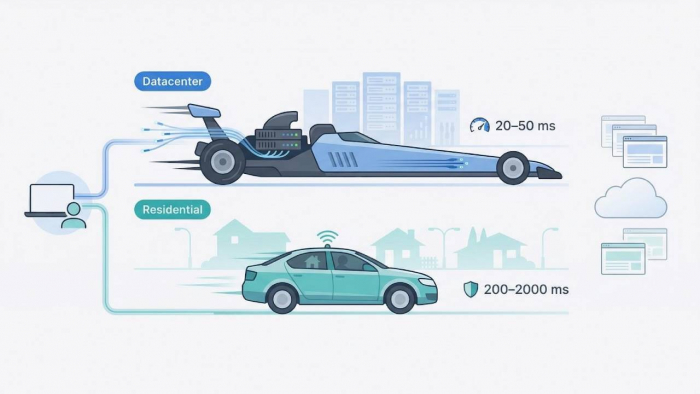Every startup shares the same brutal reality to contend with: choosing the right technology stack can make or break your business's future. Do it right, and you'll scale smoothly from garage mode to world behemoth. Get it wrong, and you'll blow valuable months (and dollars) on technical debt instead of growing your business.
The secret isn't choosing the shiniest gear – it's designing a cohesive system that can grow with you. Stick to your plan for making savvy tech choices that won't ultimately hurt you.
Core Infrastructure
Your technology base is similar to the pipes in your house – nobody sees it functioning, but everybody suffers when it isn’t. Cloud platforms like AWS, Google Cloud, or Azure are your go-to place. They're not buzzwords for the hipster brigade; they're actually game-changers that enable you to scale without breaking the bank or hiring a small army of DevOps engineers.
Don't sleep on database decisions, either. PostgreSQL and MongoDB have saved many startups from pains of the early stage, and Redis can do miracles for caching. Your future self will thank you for making these decisions early on, rather than trying to migrate everything later when you're drowning in technical debt.
Development and Collaboration
This is where it gets fascinating. Your development workflow can make or break your velocity. Git repositories (GitHub, GitLab, or Bitbucket) are not a luxury – they're a need, just like Monday morning coffee. Use these along with continuous integration tools like Jenkins or GitHub Actions, and you have a recipe for shipping features without sleepless nights.
Communication tools deserve a mention in their own right because, honestly, remote working is not going away. Slack or Microsoft Teams will be your virtual office water cooler, and project management applications like Jira, Trello, or Notion get everyone rowing in the same direction. Speaking of remote working, security is a major concern when your team are spread out across several sites. A reliable free VPN for Linux, as recommended by the cybersecurity experts at VPNoverview, can help protect your developers' connections when they're working from coffee shops or co-working spaces.
Customer-Facing Technologies

Your users don't care about your stunning backend design – they're concerned with their experience. Content delivery networks such as Cloudflare can make your app feel blazingly fast globally, while tools like Google Analytics or Mixpanel assist you in understanding what's really doing the trick (and what isn't).
Don't underestimate the power of good customer support software, either. Software like Intercom or Zendesk can turn angry customers into loyal fans. It’s amazing how a timely, helpful response can completely reverse someone's perception of your company.
Scaling Smart
As you grow, monitoring and observability become your buddies. New Relic, Datadog, or an open-source Prometheus stack will enable you to spot issues before they become catastrophes. There is nothing quite like being warned of a problem before your customers even have a chance to perceive it.
Remember that it's not about using every new shiny thing that finds its way onto Product Hunt. It's about building a sane ecosystem in such a way that every piece fits with other pieces. Start small, measure everything, and scale wisely. Your startup's success is not only based on your brilliant idea, but also on the tech platform that it's built on.
The perfect tech stack is the one your team can really use to their best potential – not one that wows on paper.
Post Comment
Be the first to post comment!





